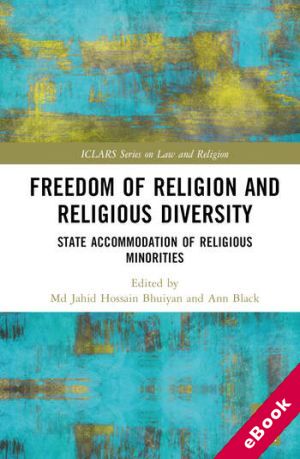
The device(s) you use to access the eBook content must be authorized with an Adobe ID before you download the product otherwise it will fail to register correctly.
For further information see https://www.wildy.com/ebook-formats
Once the order is confirmed an automated e-mail will be sent to you to allow you to download the eBook.
All eBooks are supplied firm sale and cannot be returned. If you believe there is a fault with your eBook then contact us on ebooks@wildy.com and we will help in resolving the issue. This does not affect your statutory rights.
Today, pluralism is increasingly the norm and can be seen as a permanent characteristic of modernity. As seen in world events, religion has not become irrelevant but more diverse, giving rise to a complex web of religion and belief minorities, together with intra-plural majorities. Nations seek ways to implement the ideal of freedom of religion, but as this book shows, whether East or West, in the global North or the South, there is no simple formalism for accommodating religious diversity. Different faith communities have competing needs and demands for the same social space, with tensions inevitably arising. This book highlights responses from liberal democracies which enshrine secularism into their constitutions to other constitutions where religion and ethnic identity are enshrined to prioritise their ethno-religious majority. Western and Asian countries encounter different obstacles and challenges. With analysis from nineteen international scholars, the book explores different obstacles and responses to accommodation of religious minorities in a range of jurisdictions. In a globalised world, it will be invaluable for comparative legal scholars, for law and religion scholars, researchers and students, and decision-makers, e.g., governments, NGOs, and for those who seek to better understand the challenges of our time.